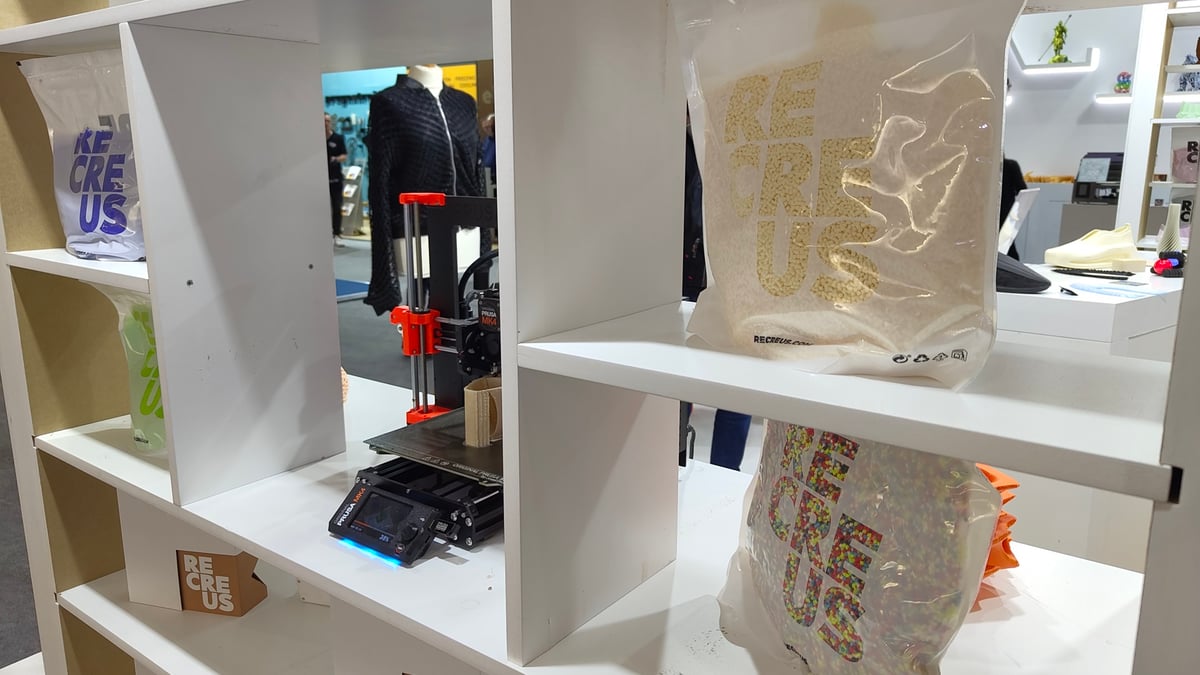In partnership with Spanish flexible material specialists Recreus, Balena’s BioCirFlex3D material is available to the wider printing public and businesses via Recreus’ online store in the form of Balena.Filaflex, a 1.75 mm size 3D printable filament.
What the heck is BioCirFlex, you may ask? And what’s a Balena? In short, Balena is a material science company that has been pushing for improvements in the circularity of consumer goods, most visibly in the fashion industry, through its work developing functional elastomeric thermoplastics that are suitable for end-use goods that can then be broken back down into natural elements and biomass, leaving little to no trace of their existence after the fact.
Over the last couple of years, Balena has made progress with its BioCirFlex and BioCirFlex3D materials, collaborating with designers and fashion brands to promote the materials in limited-edition goods and concept pieces, such as the Lemon Jelly NYSSA bag.

The new partnership with Recreus means that Balena’s decomposable flexible material is, for the first time, available for anyone to use. The material was announced at Formnext alongside new pellet varieties of Recreus’ other flexible materials.
Balena.Filaflex comes on 750 g spools and has a shore hardness of 80A. It is best printed slowly – 20 mm/s says Recreus, citing an Original Prusa MK3S 3D printer with 0.8 mm nozzle as the system the parameters were determined from. The resulting prints, Recreus says, are highly flexible, highly durable, and soft-touch. We’re told that the natural beige color is a consequence of the material’s composition. Recreus is working on expanding this with a color range that uses environmentally responsible pigments that preserve the material’s circular integrity.
It’s worth noting that processing this filament for decomposition is similar to that of PLA, which is often spuriously claimed as an eco-friendly compostable material, a claim that’s often disingenuously presented to home users. The key misunderstanding lies in the fact that you can’t simply toss these products in a compost heap and expect them to break down like regular organic waste – it has to go through an industrial composting process to decompose properly. So does Balena.Filaflex. Certified to ASTM D6400-04 and EN 13432 standards (equivalent US and EU certifications) it requires heat and a controlled microbial environment to break down, something only possible in an industrial facility.
The challenge this provides is getting wastage into a stream for breakdown. Recreus has told All3DP that efforts are ongoing to develop collection and aggregation models that allow printed Balena.Filaflex materials to be disposed of responsibly.
One spool of Balena.Filaflex will set you back ~74€ (approx. $77) from the Recreus webstore. A pellet form is expected to follow in the coming months.
Read more recent news:
License: The text of "New Balena.Filaflex Is a Compostable Flexi Filament for End-Use Products" by All3DP is licensed under a Creative Commons Attribution 4.0 International License.
 Stay Informed, Save Big, Make More
Stay Informed, Save Big, Make More